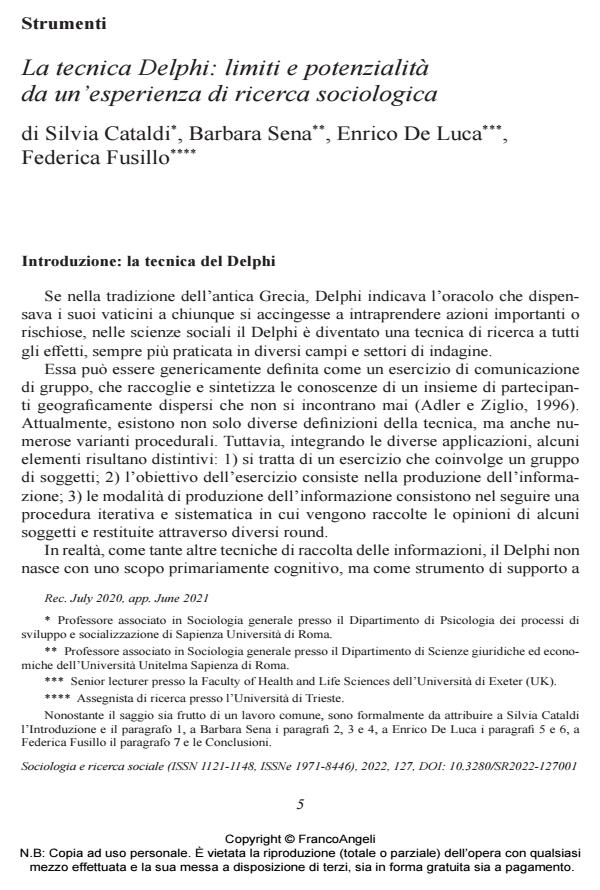The Delphi technique: limits and potential from a sociological research experience
Journal title SOCIOLOGIA E RICERCA SOCIALE
Author/s Silvia Cataldi, Barbara Sena, Enrico De Luca, Federica Fusillo
Publishing Year 2022 Issue 2022/127
Language Italian Pages 21 P. 5-25 File size 218 KB
DOI 10.3280/SR2022-127001
DOI is like a bar code for intellectual property: to have more infomation
click here
Below, you can see the article first page
If you want to buy this article in PDF format, you can do it, following the instructions to buy download credits

FrancoAngeli is member of Publishers International Linking Association, Inc (PILA), a not-for-profit association which run the CrossRef service enabling links to and from online scholarly content.
Delphi is a technique born in the fifties of the last century that takes advantage of the group to collect opinions and build a consensual representation. Starting from a research experience in the socio-health field on the issue of interprofessional care, the paper aims to propose a methodological evaluation of the technique, highlighting its limits and potential for social research.
Silvia Cataldi, Barbara Sena, Enrico De Luca, Federica Fusillo, La tecnica Delphi: limiti e potenzialità da un’esperienza di ricerca sociologica in "SOCIOLOGIA E RICERCA SOCIALE " 127/2022, pp 5-25, DOI: 10.3280/SR2022-127001